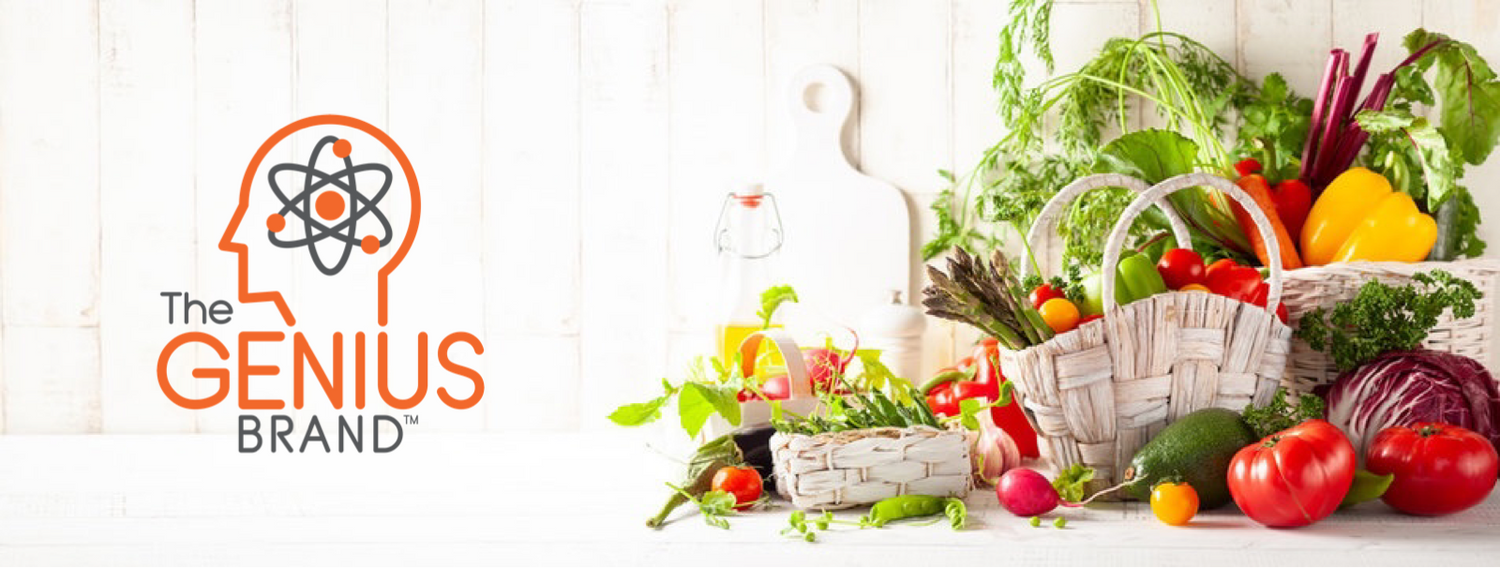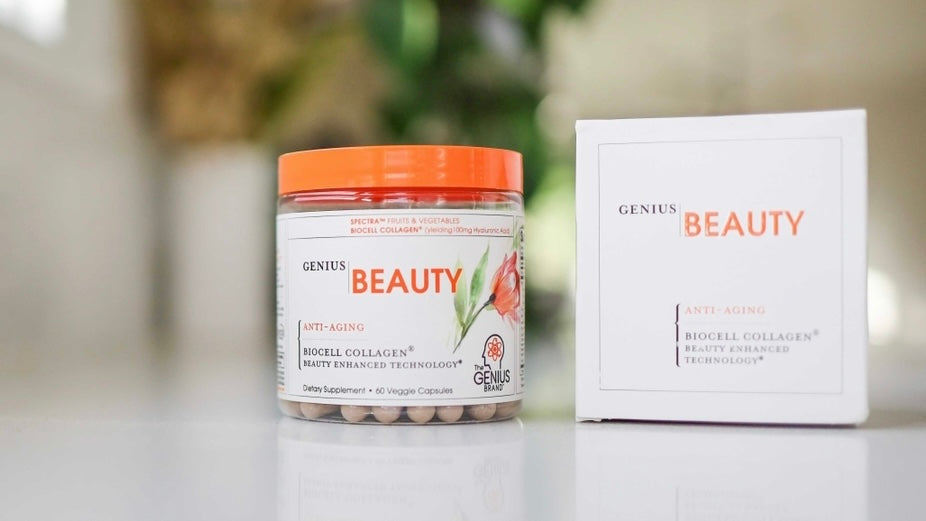Genius Dietary Essentials
“You are what you eat” is a saying we’re all familiar with. For us at The Genius Brand, nutrition has always been a foundation for understanding which foods, vitamins, and minerals impact our lives the most.
As a supplement brand, our goal is to create products that can help our customers maximize the quality of their lives through natural ingredients. Supplements can’t replace proper nutrition, though. Let’s discuss the essentials of quality nutrition and the types of foods to search for at the grocery store.
The best foods offer rich vitamin, mineral, and nutrient content while being low in sugar, saturated fats, and sodium. Ideally, we want to cover all the essential food groups in our daily diet with options that fulfill these criteria.
Here are those main groups, as identified by the Dietary Guidelines for Americans 2020-2025, and some of our favorite recommendations for great options within each.
Fruits

While fruits are important, they are also naturally high in sugars so it’s important to consume them in moderation. 1.5 – 2 cups of fruit a day is the average daily recommendation from the USDA, but this amount can vary by age and individual activity levels. Blueberries, bananas, oranges, grapefruit, and lemons are all excellent sources of antioxidants, vitamins, and nutrients.
Vegetables
As a rule of thumb, dark green vegetables and starches, along with beans and lentils, are among the best choices when it comes to veggies. Spinach, kale, broccoli, cauliflower, sweet potatoes, peas, beets, carrots, and onions are low in calories while offering prime sources of Vitamin A, B, C, and K collectively.
Grains

Reducing carbs and bread has been very popular and trendy in dieting circles for years now, but grains and the complex carbohydrates they offer have an important place in our diets. The most important rule is to choose high-quality whole-grain options, where the bran and germ of the grain kernels have not been refined out.
The fiber and nutrients found in these parts of the kernels are excellent for maintaining consistent digestion, healthy blood pressure, and balanced blood sugar. Brown rice, oats, barley, and rye are examples of high fiber whole grains to look for while grocery shopping.
Dairy

Dairy products are excellent sources of calcium and protein. Yogurt and cheese are two of the best choices, particularly Greek yogurt (unflavored to minimize sugars) which provides valuable probiotics, and cheddar or mozzarella cheese. For those who are lactose sensitive, almond milk and Greek yogurt are a useful pair that many who need the nutrients of dairy but need lactose kept to a minimal level.
Protein

Dedicated, high-quality protein sources come in many forms. The ones you choose will depend on dietary preferences (vegans will want to avoid meat and seafood) but lean beef, beans, almonds, white meat poultry, and salmon are perfect choices for cleaner, healthier protein sources.
For vegans and vegetarians, fermented soy products like tofu and edamame are also recommended for their high vitamin and protein content.
Oils

As with grains we typically want unrefined oils that retain more of their nutrients. Extra virgin olive oil is a familiar mainstay for many when cooking, for example. Avocado oil is very similar and comes with Vitamin E and a naturally high unsaturated fat content.





Leave a comment
This site is protected by hCaptcha and the hCaptcha Privacy Policy and Terms of Service apply.